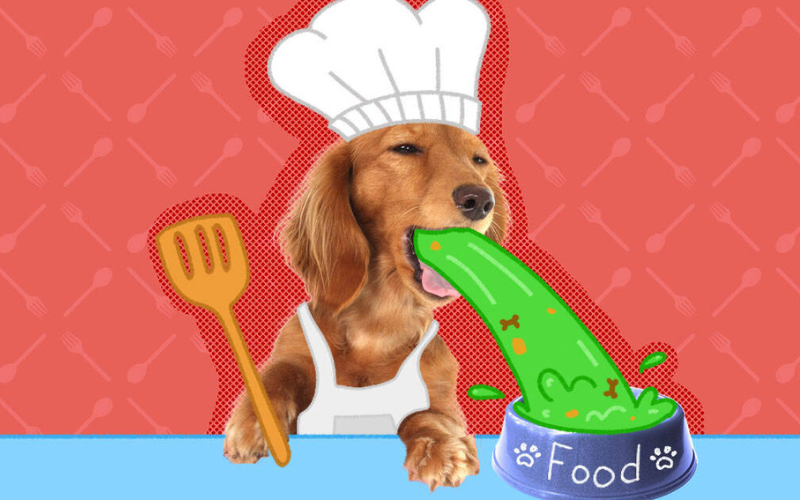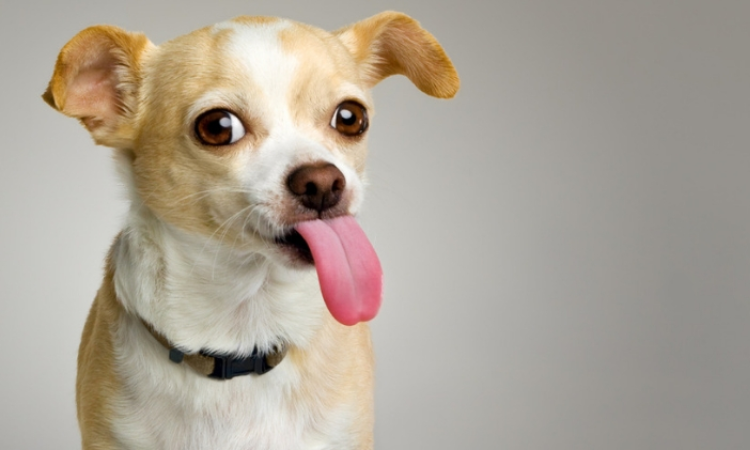Being a pet owner is a full-time responsibility. Overthinking is common, especially among overprotective owners who worry about even the slightest sniffle. This is especially relevant for dog owners; think about how frequently you fretted over your dog’s breathing even when it appeared to be sound asleep.
When did you first notice if they were indeed ill or just exhausted? When you have an unconditional love for your dog, questions like these can be difficult to ignore. If we’re going to start with the most intriguing subject, why do dogs consume their own vomit?
Why Do Dogs Eat Their Own Vomit?
1. A Taste for Knowledge
Dogs may be more advanced than humans in certain respects. Comparatively, a dog has 300 million olfactory receptors in its nose, whereas humans only have roughly 6 million. These receptors detect the chemicals in an odor that allows us to identify it. It’s safe to say then that dogs have an incredible sense of smell, far more so than humans.
However, there are some really unpleasant side effects to consider. Even though the sight of vomit makes you sick to your stomach, your dog doesn’t share your disgust. This is because dogs have a heightened sense of smell and can quickly recognize the food remnants in vomit, leading them to mistake it for a meal.
Actually, there are certain canines that won’t bat an eye at eating cat poop. Owners help puppies make the change from breast milk to solid food when the time is right, a learned behavior. For best results, weaning should take place over several weeks. However, weaning can also occur naturally and without human intervention.
In fact, wild moms begin this procedure almost immediately after birth by regurgitating food for their young. As a result, if your canines exhibit this behavior, you should not worry. Despite the negative connotation, this is a natural part of a dog’s existence.

2. Inherited Habit
Given their nature, it’s not surprising that some dogs develop territorial attitudes. Biting, growling, and other unpleasant behaviors are common examples of resource guarding. Your dog’s possessiveness around food may have genetic roots, but environmental and early life influences may also be at play.
Due to resource guarding, dogs may eat their own vomit if they find themselves defending food. When the owner is cleaning up the mess or has noticed another animal approaching, this often happens. Appropriate training that discourages resource guarding is the answer to these problems.
3. Hiding Their Illness
Experts have identified a number of reasons why a dog could try to hide their condition. Dogs, for instance, will consume their own vomit if they are feeling weak so that no other animals will notice. This could help them maintain their status in the pack or protect themselves from danger. For the same reason, they may want to keep it a secret from their owner. In any scenario, their baser natures are at the root of this behavior.
Common Causes of Dog Vomiting
Even if you take excellent care of your pet, terrible things can and will happen. Because it’s life’s lot for a dog to experience disease, depression, and other negative feelings. How you deal with them is what counts. Seeing your dog consume its own vomit is an unusual and unpleasant sight, especially since it’s not something humans can connect to. Let’s talk about some of the potential causes of dog vomiting.
1. Bad Food
You shouldn’t give in to your dog’s begging for scraps when it sees you chowing down. Chocolate, candy, onions, garlic, grapes, and dairy products are all bad for your dog. You might want to check out what other kinds of food they have access to outside of what they normally eat.
Be cautious around dogs since they may eat whatever they find, including rubbish, dead animals, and even their own faeces. Otherwise, the children may contract a far more serious illness.
2. Diet Changes
Even if the dog food you’re currently feeding it is healthy, switching to a new diet too quickly can cause stomach upset. Changing diets should be done gradually. If you give them a new meal every day, you’ll quickly learn what they’re allergic to, what they like, and what they have trouble adjusting to.
3. Intestinal Parasites
Roundworms are the most common type of intestinal parasite seen in canines, however, there are many others. Intestinal parasites are commonly contracted through the ingestion of contaminated water, food, or soil. Puppy dogs can also get these from their mothers.
4. Illnesses Caused by Traveling
Because their inner ears haven’t fully developed, puppies are more likely to experience nausea and vomiting when traveling than adult dogs. This is a really common problem, so you shouldn’t stress over too much. However, to prevent motion sickness, you should provide as much comfort as possible for your dog during car rides.
5. HealthCare
Antibiotics are particularly infamous for causing stomach pain in dogs, while this is true of most oral medicines. Antibiotics can have unintended side effects like diarrhea, secondary infections, and anorexia, so be sure to discuss any concerns with your vet. After taking probiotics, many dogs experience improved health.
Things to Look Out for When Your Dog Vomits
Dogs, no matter how well-trained, will likely ingest their own vomit at some point in their lives. However, occurrences such as this are unusual. There may be a problem, but you shouldn’t panic until you’ve seen certain warning signs. Being able to identify issues before they escalate into potentially fatal crises is crucial. This is why you should be aware of the following.
1. Frequent Vomiting
If your dog has only thrown up their food twice before eating it, there’s no need to phone every vet in town. However, if they throw up frequently, you may be dealing with a persistent vomiting issue. As there are many diseases and viruses that can cause vomiting, the situation can quickly become life-threatening for your dog. If you notice any other symptoms, including a fever or a loss of appetite, it’s important to get in touch with your vet as soon as possible.
2. Unhealthy Vomit
If you have any concerns about your dog’s health, you should not be afraid to examine their vomit on occasion. For instance, the color of the vomit could be significant; red vomit could mean that your dog is vomiting blood, while yellow vomit often contains a lot of bile and is insignificant.
It could be due to something potentially harmful, such as poisoning or a digestive problem. It’s true that some foods can make a dog’s vomit appear crimson, but it’s better to be safe than sorry if you take the precaution of having your dog checked out just in case.

3. Loss of Appetite
Your dog probably won’t want to eat if it has an upset stomach. When asked “Why do dogs eat their own vomit?” most people have no idea that vomiting is immediately followed by a momentary loss of appetite. A veterinary consultation is warranted if your dog continues to avoid food for more than a few days. These signs and symptoms can be caused by a variety of serious conditions, including stress, kidney failure, and many more.
4. Laziness
Just like humans, dogs can feel exhausted after throwing up. Don’t be surprised if your dog seems a little less perky afterward; it takes a lot of effort and energy. Canines in good health, though, shouldn’t have any trouble recuperating. If your dog shows signs of lethargy after vomiting, it could be a sign of a more serious problem.
5. White or pale gums
Diseases often manifest themselves in the form of white or pale gums. If you think your dog has anemia, stomach ulcers, or parasites, don’t wait to take him to the doctor.
6. Diarrhea
Diarrhea in canines is often the result of a change in diet or the ingestion of unhealthy food. However, if you’re also vomiting and have diarrhea, it could mean you’re unwell. Pancreatitis and parvovirus are only two of the many diseases that can cause these signs, so it’s best to consult your vet if you’re anxious.





